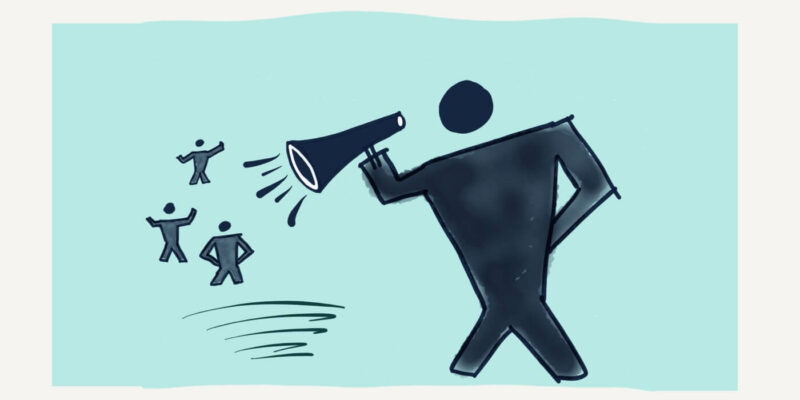Do you ever struggle to shake off bad moods? Or wish you could bounce back a little faster from stressful or frustrating experiences?
If so, join the club.
Most of us struggle with difficult emotions and moods because we were never taught much about our emotions, either how they work or how to work with them.
As a result, most of us feel bad for having them and try to get make them go away as fast as possible. But, when we try to eliminate or escape from difficult emotions, we only train our minds to be more reactive to them.
Instead of constantly trying to fix or eliminate difficult emotions, what if we learned how to work with them? What if we could learn how to stop fighting our emotions and live alongside them? In short, what if we could build a better relationship with our emotions?
I believe the key to building a better relationship with our emotions and creating a healthier, more balanced emotional life is the regular practice of Emotional Fitness.
What is Emotional Fitness?
Emotional fitness is the idea that in order to lead healthy, happy emotional lives we need consistent habits and exercise that support our mental health and wellbeing.
Just like physical health depends on a foundation of good diet and exercise habits, our emotional health depends on a foundation of positive habits and exercises.
Now, I can hear you saying to yourself: “I know where he’s going with this… Emotional Intelligence! That’s what we need.”
Not exactly.
While the concept of Emotional Intelligence has picked up steam over the last twenty years, I don’t think it’s a helpful term for the simple reason that it’s too intellectual.
Emotional Intelligence implies that we can have a healthier emotional life if we’re smarter about our emotions and learn more stuff about them. In other words, it implies that a healthy emotional life is primarily a matter of knowledge and understanding.
But as anyone who’s ever tried a new diet or signed up for a new gym membership knows, understanding what we need to do isn’t the hard part.
We all know we should eat more veggies and less junk food and that we should watch less Netflix and go for more walks. But despite our knowledge and good intentions, we all struggle to do the things we know will help.
It’s no different with mental and emotional health.
Understanding our emotions is important, but the far more challenging part of developing mental health and wellbeing is the practice:
- You might understand intellectually that beating yourself up with lots of negative self-talk only makes your mood worse. But changing your default inner voice is hard, slow, challenging work.
- You might understand intellectually that you should be assertive and speak your mind. But tolerating the anxiety that comes with asking for what you want and setting boundaries on what you don’t is another story.
- You might understand intellectually that exercise is one of the best ways to combat depression. But getting yourself out of bed and into the gym doesn’t just happen because you know it’s good for you.
I prefer the term Emotional Fitness because it implies that to achieve meaningful and lasting change in our emotional lives, it takes a commitment to exercise and new habits in addition to more knowledge and information.
The Benefits of Emotional Fitness
Before we dive into how exactly to begin building the habits of emotional fitness, it’s worth taking a closer look at the real-life benefits of doing so. Because the clearer we are on why emotional fitness will really benefit us, the more motivation we’ll have to work toward it.
Decreased Stress and Overwhelm
Most people make the mistake of only trying to reduce stress once it’s arrived. And while stress is occasionally unavoidable, the biggest reason we get stressed out and overwhelmed is that we’re not very good at managing our stressors.
Part of emotional fitness is learning what sorts of events and situations tend to produce stress in us. The more aware we are of the connection between certain triggers (stressors) and our own stress response, the more intelligent we can be about dealing with those stressors before they become stress.
For example, many people experience chronic stress and overwhelm because they’re not very assertive. They have a hard time asking for what they really want and saying no to the things they don’t. But at its core, assertiveness is not a communication issue, it’s an emotion issue.
By developing a better relationship with emotions like anxiety and guilt, we can improve our ability to assertively manage our stressors and prevent them from producing stress in the first place.
Better Communication and Relationships
If you’re anything like me, some of the most upsetting situations in life come from arguments with your spouse. And this is normal—because our spouse is the most important relationship in our life, that means there’s the most at stake when things get shaky.
Unfortunately, most fights, arguments, and blow-ups in our relationships come from not really understanding each other, what our real wants and needs are. We easily get accusatory and then defensive, and before we know it, we’re 12 hours into one of those long, painful stretches of days where we barely talk and everything feels awkward and uncomfortable.
Fundamentally, these communication and relationship problems are really emotion problems. Because we all have a hard time dealing with emotions like defensiveness, pride, hurt, and guilt, we tend to act in ways that we’re not proud of and regret later on.
Building better emotional fitness can help us tolerate and manage difficult emotions in our relationships and then find more productive ways to work through difficulties.
Freedom from Anxiety and Worry
Every form of anxiety, from panic attacks and phobias to chronic worry and OCD, boils down to habits. Specifically, how we habitually respond to an initial burst of fear or anxiety determines whether our anxiety mushrooms into an overwhelming explosion of negative emotion or gradually fades away. Even more specifically, the habits of worry and avoidance are the main drivers of chronic anxiety.
So why do we worry and avoid things even if it only makes us feel more anxious in the long-run?
Short answer: We’re not very good at emotional tolerance.
Slightly longer answer: Because we’re in the habit of instantly fighting or running away from our fear and anxiety, we teach our brains to be afraid of anxiety, which leads to vicious cycles of ever-increasing anxiety.
The solution is to train your mind to stop fearing its own emotional reactions. A key component of emotional fitness is learning to tolerate initial bursts of negative emotion and detach from our habits of worry and avoidance, we can truly free ourselves from the endless cycle of worry and anxiety.
Stick with Your Goals and Commitments
Have you ever set out to do some work only to end up procrastinating and getting distracted? Ever told yourself in the evening that tomorrow is the day you finally wake up and go for a run early only to end up snoozing and missing the run altogether? Ever committed to being more honest and straightforward with your spouse about what you really want only to end up caving and just “going with the flow”?
Of course you have. We all have.
In one area or another, we all struggle to stay committed to our goals and aspirations. But the reason this is so difficult isn’t that we don’t really want it. We do! And it’s not that we’re not trying. We are! It isn’t even that we don’t know enough. We’ve all read plenty of articles and books about sticking with our goals!
The real reason most of us fail to stick with our goals and commitments is that we’re not very good at managing our emotions. Specifically, we’re not very good at dealing with negative emotions like anxiety, shame, and regret that inevitably come up in some form or another when we push ourselves to try new things and grow.
But with a solid foundation of emotional fitness, we become much better at identifying these emotional pitfalls as soon as they arise, and then navigating them intelligently and confidently so that we can stay on track with our goals.
Increased Self-Awareness and Mindfulness
One of the most subtle but impactful benefits of boosting your emotional fitness is that it can dramatically increase your ability to be self-aware and mindful. When we start building a better relationship with our emotions it frees us up to really look at and observe our feelings rather than instinctively reacting to them.
This ability to slow down and be with our feelings—even the difficult ones—is a hallmark of truly self-aware people. And along with greater self-awareness comes a host of benefits ranging from improved decision making and communication to better leadership and more intimate relationships.
How to Start Building Emotional Fitness
In some ways the concept and implications of emotional fitness are daunting: To build our emotional health and wellbeing, we need regular habits and exercises that strengthen our mental muscles and emotional health.
But just like the physical health and exercise, the fact that it’s important and has serious implications doesn’t mean we can’t start small and take things one step at a time.
When you first show up at the gym, it can be intimidating to see all the different machines and exercises that are possible and to compare yourself with all the people who seem to have mastered them all already.
But the smarter strategy is to walk around the gym a bit, find something that looks both naturally appealing and doable given your current fitness level, and dip your toes in.
And that’s exactly how I recommend getting started with emotional fitness. What follows is a brief introduction to the types of activities and exercises you can use to build your own emotional fitness. For each one, I provide a brief description along with some links to where you can learn more.
Get to know your emotions
I think the best place to start with emotional fitness is—unsurprisingly—your emotions. But before we rush to start doing something about the way we feel, it’s important to get practice simply becoming more aware of how emotions play a role in our lives.
- Emotional Clarity. Emotional clarity means taking the time to deliberately reflect on our emotions. It means paying attention to them, labeling them, and observing some of the more subtle mixtures of emotion we often miss. Learn more: Emotional Clarity: 6 key Principles for Managing Your Emotions.
- Emotional Myth-busting. Because most of us had a pretty poor emotional education, there are a lot of myths and misconceptions floating around people’s minds about emotions. To genuinely understand our emotions and begin to create better habits around them, it’s important to eliminate misleading or unhelpful ideas about emotions. Learn more: 7 Things You Should Have Learned About Emotions in 3rd Grade
- Emotional Tolerance. Like most areas of life, the real challenge in building a healthy relationship with our emotions is to resist short-term gratification and instead invest in long-term values. Most of the problems people get themselves into emotionally—from chronic anxiety to depression and anger-management issues—stem in one form or another from trying to eliminate or escape our feelings rather than the (sometimes painful) act of being with them. Building emotional tolerance is practically a superpower when it comes to mental health and wellbeing. Learn more: In Defense of Feeling Bad.
Cultivate better mental habits
As important as it is to understand our emotions and have a healthy relationship with them when they show up, long-term emotional fitness requires that we understand and manage the source of our emotions.
Ultimately, the way we feel emotionally is the result of how we think. The basic idea is that to have an emotion requires some amount of cognitive interpretation of what is happening to us. The implication is, the way we tend to think profoundly influences the way we tend to feel.
In terms of emotional fitness, this means that our mental habits are the single most important driver of how we feel on a regular basis. And that if we want to improve how we feel, we need to improve our mental muscles and habits.
- Mindfulness. Practicing mindfulness means building the mental muscle of awareness and attentional control. Before we rush to start thinking about something (like how we feel), it’s important to consider how we’re thinking. Do we frequently get stuck in perseveration, worry cycles? Do we have trouble letting go of past mistakes or detaching from judgmental lines of thought? All of these signal a need to improve the way we think, to improve our ability to control our attention. And cultivating a regular mindfulness practice is the best way I know to do that. Learn more: How to Start a Mindfulness Practice: A Quick Guide for Complete Beginners
- Cognitive Restructuring. While it’s essential that we improve our ability to change the way we think, it’s also useful to learn how to modify the content of our thoughts. Specifically, if we tend to have a lot of negative self-talk, it’s a useful skill to learn how to identify that self-talk and then train our minds to have a more constructive default way of explaining and interpreting events in our lives. Learn more: Cognitive Restructuring: The Complete Guide to Changing Negative Thinking
- Mental Minimalism. The idea of minimalism is hot these days. We’re all about trying to declutter our physical spaces, and increasingly, our digital lives as well. But perhaps even more important than a tidy garage or iPhone home screen is a well-organized mind. Mental minimalism is the simple but powerful idea that just like we need to be good stewards of the stuff that we let into our lives, we also need to be good stewards of the stuff that we hang on to in our mental lives. Learn more: The Case for Mental Minimalism
All You Need to Know
Emotional fitness is the idea that in order to lead healthy, happy emotional lives we need consistent habits and exercise that support our mental health and wellbeing.
To maintain a healthy weight, we need healthy eating habits. To stay financially solvent, we need healthy money habits. To maintain a healthy marriage, we need regular habits and routines that nurture our relationship. And if we want a healthy emotional life, we need to build and stick to healthy habits of mind.





10 Comments
Add YoursWhat we could learn how to stop fighting our emotions and live alongside them? In short, what if we could build a better relationship with our emotions? typo left out the word ” if ” after ” what ” in first sentence. Thanks for the article. I enjoyed it.
Really excellent information. So understandable and I enjoy how you compare mental fitness to physical or financial fitness.
Now just need some concrete examples! But I get the concept. Thank you so very much!
This article together with the links included contains a mountain of valuable cutting edge information to help our emotional resilience and fitness. I am right into it but it is going to take me weeks to fully digest it and begin to integrate it into my thinking and behavior. Making this information available in this way is an incredibly kind act of public service.
Hi Nick,
Thanks for the article, it makes such sense after I read it and wonder why it hasn’t been talked about or included automatically when talking about emotional intelligence.
I agree with Ann, some concrete examples would be great. I was telling a friend recently about another of your articles and when she asked for an example I didn’t really have one. If you could link your thoughts to real examples showing a “before and after” effect that would help me so much.
Inspirational! Decluttering for 2022….
Thank you for demystifying how our minds/emotions interplay and giving true meaning to ” Healthy Mind and Healthy Body”!
Best Wishes for 2022
Nick, thanks for writing such useful articles!
Thank you so much Nick. Great article with amazing links. I feel a project coming on. I’m very keen to learn more about being emotionally fit. It’s an area I want to improve in. Very kind of you to provide this amazing service.
A comprehensive and thought provoking perspective on how to leverage emotions to promote mental – and overall – well-being. A neat pivot from emotional intelligence- the knowing and understanding, to emotional fitness – the practice of positive habits and exercises to achieve the desired outcome of mental and overall personal well-being.
Very helpful. Thanks for sharing Nick.
Great article, thank you so much.
Hi nick! Thanks for the thoughtfully message appreciate it. Additional insight to move forward towards emotions. 🙂